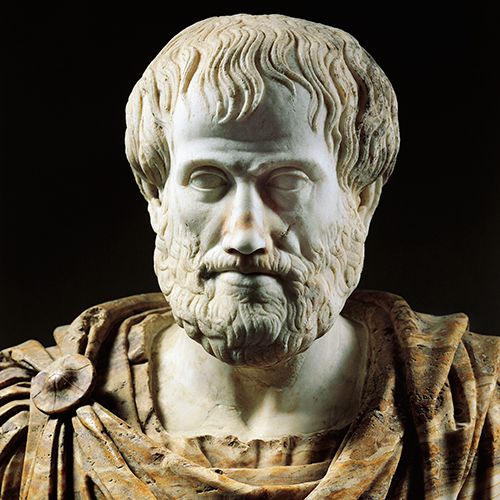Aristotle, a towering figure in Western philosophy, shaped intellectual discourse for centuries. This article explores his life, core ideas, and lasting impact on science, ethics, politics, and logic.
A Life Dedicated to Learning:
Born in Stagira, Greece, in 384 BCE, Aristotle’s intellectual journey began under the tutelage of Plato, the renowned philosopher. After Plato’s death, Aristotle established his own school, the Lyceum, in Athens. There, surrounded by scholars and students, he delved into a vast array of subjects, from biology and physics to ethics and politics. This thirst for knowledge and commitment to systematic analysis laid the foundation for his groundbreaking contributions to various fields.
Logic: The Cornerstone of Reasoning:
One of Aristotle’s most significant contributions is the development of formal logic. He identified syllogisms, a logical structure consisting of a major premise, a minor premise, and a conclusion, as the foundation of sound reasoning. His work on logic established a framework for analyzing arguments, differentiating valid from fallacious reasoning, and drawing logical conclusions from premises. This system of logic continues to be a cornerstone of critical thinking and academic discourse.
Understanding the Natural World:
Aristotle was a keen observer of the natural world. He conducted detailed studies of various living beings, laying the groundwork for biology. He categorized animals based on their observable characteristics and believed in a hierarchical structure within the natural order. While his scientific theories were later superseded by advancements in scientific methods, his emphasis on observation and classification proved essential for future scientific exploration.
Ethics and the Pursuit of Happiness:
Aristotle’s views on ethics revolved around the concept of eudaimonia, often translated as “happiness” or “flourishing.” He believed that eudaimonia could be achieved through living a virtuous life, where one cultivates virtues like courage, temperance, and wisdom. This virtue ethics emphasized the importance of developing good character traits and making morally sound decisions. His Nicomachean Ethics remains a cornerstone of Western ethical thought.
Politics and the Ideal State:
In the realm of politics, Aristotle explored different forms of government, analyzing their strengths and weaknesses. He advocated for a form of government led by a virtuous elite who prioritize the common good. His ideas on citizenship, justice, and the importance of law and order have significantly influenced political philosophy and the development of democratic societies.
The Enduring Legacy:
Aristotle’s impact transcended his time and place. Islamic scholars like Averroes preserved his works, leading to a rediscovery of his ideas in the Middle Ages that profoundly influenced Western thought during the Renaissance. His systematic approach to inquiry, emphasis on logic, and exploration of diverse topics laid the groundwork for many modern academic disciplines. Today, Aristotle remains a key figure in the history of Western philosophy, inspiring scholars and thinkers across academic disciplines.
